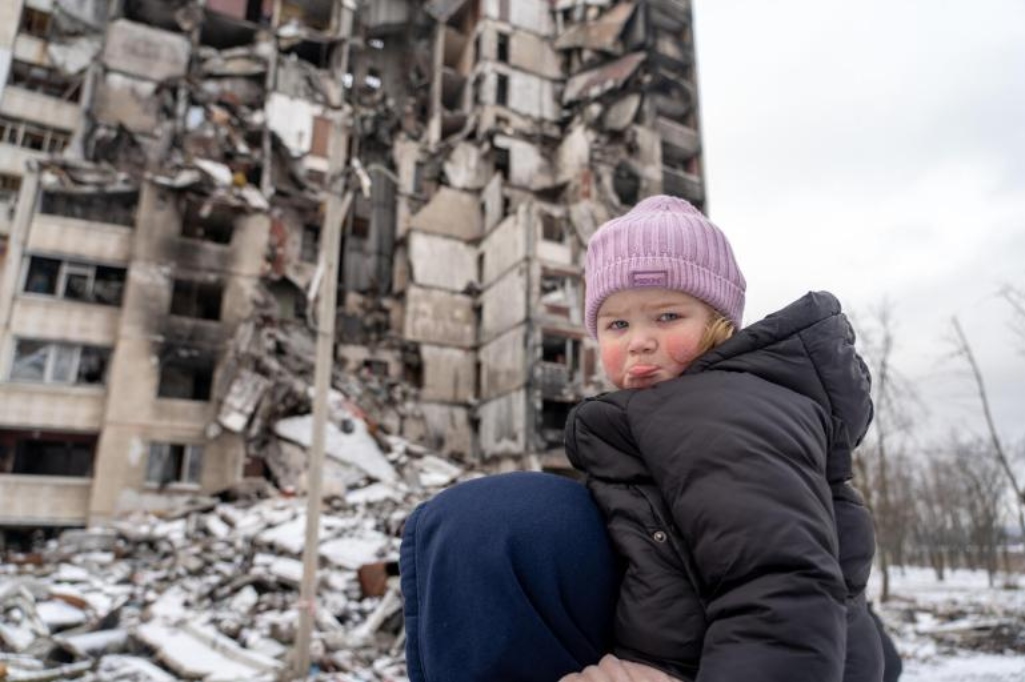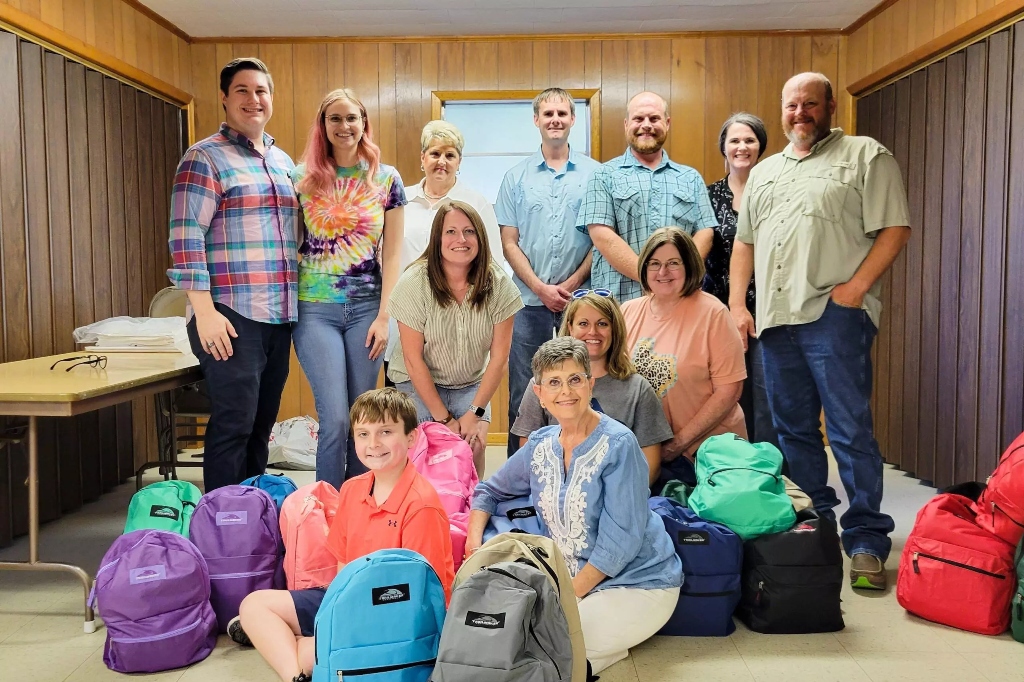
ODESSA, Ukraine (BP) – Russia’s ongoing war on Ukraine has added more children to an initial count of 100,000 Ukrainian orphans at greater risk of abduction, sex trafficking, criminal adoption and long-term trauma, a leader in Ukrainian orphan care told Baptist Press.
Ukraine released about 40,000 orphans from specialized boarding schools as the war began and has lost track of an estimated 25,000 orphans who are no longer in the country, Rick Morton, vice president of engagement for Lifeline Children’s Services, told Baptist Press.
“We know that these kids are the most vulnerable to being enslaved, to being trafficked, to being moved into the child sex trade, all of those things, and that was a peril that existed before the war,” Morton said. “Twenty-five thousand kids by the conventional estimates, nobody in any position of authority seems to understand where they are. In the chaos of the war, undocumented children are the easiest prey for those that would victimize children.”
Morton is not aware of any credible counts indicating the number of children newly orphaned in the war – above the initial 100,000 – now in its 13th month.
“Subjectively, I don’t know of anything that really gives a hard number or gives much data to that,” he said. “I think subjectively what we have heard from people on the ground … is that many of the orphanages that were not evacuated were what Ukraine would call baby houses” that ministered to children birth to 2 years old. “Those houses have continued to swell in population in many places, while the number of workers has continued to drop.
“I know the Ukrainian government’s doing all that they can within the scope of things, but those orphanages are benefitting from ministries like ours – Send Relief and others,” he said, “that are taking food, that are taking supplies into them. But the situation continues to be more critical, because there are children being added.”
Morton points to reports, supported by the U.S. government, that Russia has essentially kidnapped 6,000 children to be placed for adoption in Russia, regardless of the status of their parents.
Yale University researchers have identified at least 43 camps and other facilities where Ukrainian children have been held since Russia’s invasion began, according to the report from the Conflict Observatory.
At least 8,173 civilians had been killed and more than 13,600 had been injured in Ukraine through March 6, the United Nations High Commissioner for Human Rights said. Military casualty estimates vary widely, with Forbes magazine stating approximately 13,440 Ukrainian soldiers had been killed on military tanks through February, not including those killed among dismounted troops.
Among Lifeline’s partners are Southern Baptist Send Relief, the Regen Foundation, Heritage Ukraine and the Romania Without Orphans Alliance. In Odessa, Heritage Ukraine leaders originally fled heavy missile attacks and began serving orphans through the Regen Foundation in Romania, Morgan said. But Heritage Ukraine directors Slavik and Alyona Puzanov, after wrestling with their proximity to the need, have since returned to help orphans still in Odessa.
“Where they fled the war in the beginning, believing that was the right thing to do for them and their family, they’ve now gone back home … to Odessa,” Morgan said. “Slavik and Alyona are now on the ground, back at home, running the distribution of those things and ministering to those families in a much more direct way, providing support to them.”
Many orphans in Ukraine have living parents who are unable to care for them, but must now do so because of the war. Such obstacles as mental and physical disabilities, substance abuse and financial handicaps have orphaned many. These children are among the orphans Scripture instructs Christians to care for, Morton said.
“I think in the body of Christ, we have to look at this differently to say we have a call from God to visit widows and orphans in their affliction. Visit means to pastor. It means to shepherd. And part of the pastoring and shepherding that’s going to need to be done now and for a long time in the future, is coming alongside these children that have experienced things that no child ever should,” he said. “Some of them have experienced things that no child ever should before the war, and then all of this on top of that.
“And so (we) need to lean in with not only our finances, our resources, but to find ways to lean in personally to get involved and do things to make a difference.”
Lifeline is studying a long-term strategy to mobilize its thousands of partner churches in using resources, including members in critical professions, to respond when it’s safe to enter Ukraine. Currently, churches are able to send teams to surrounding countries where orphans and other children are displaced by the war.
“We need really strategic kinds of people to dive into this,” he said. “There’s going to come a day when it is going to be a possibility.”
The inclusion of widows and orphans in the same Bible verses and discourses, Morton believes, lends weight to an analysis that Scripture considers children orphans when they’ve lost one parent to death. Scripture likely refers to widowed women and their children.
“We don’t like to use the term in orphan in America. It holds a really negative connotation, but the rest of the world doesn’t necessarily look at it the same way we do,” he said. “And there definitely is a mindfulness about children who have lost one parent to death.”
Lifeline, based in Birmingham, Ala., began its ministry in Ukraine as an international adoption agency, but expanded it to include orphan care because of the unique orphan population there. The ministry is particularly dear to Morton, as he is the adoptive father to three Ukrainian children, now adults.
“I think we need to anticipate that the effects of this war are going to continue for a long time. There are going to be a lot of kids that are going to need safety and security and stability and they need churches, they need the body of Christ to rise up to help them meet those needs,” Morton has said. “And we know that the true hope of Ukraine is not the end to the conflict. The true hope of Ukraine is the Gospel, and it’s Jesus.
“And so we’re both praying and actively working to bring the Gospel to bear in the lives of vulnerable children and as we’re trying to help them experience safety and security right here and right now.”
(EDITOR’S NOTE – Dianna Chandler is Baptist Press’ senior writer.)


